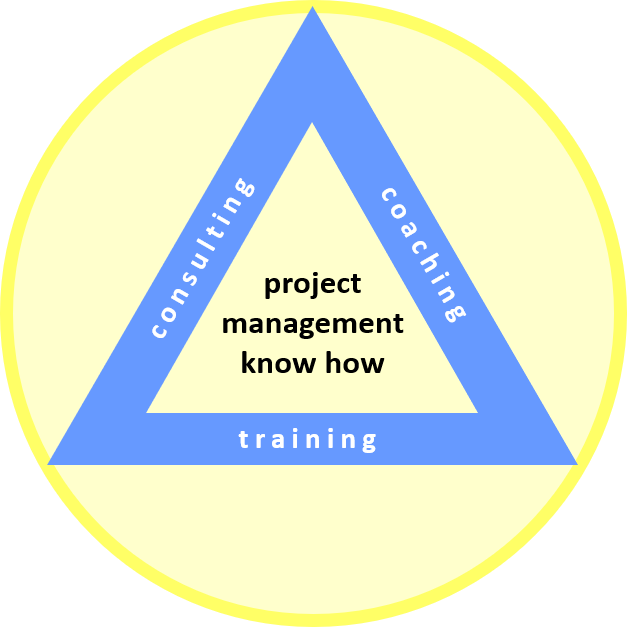Project Management Know-How
Why is good project management know-how important for you?
If you are working for a company that is doing substantial parts of its business in projects, you know that high-quality project management is one of your company's key success factors.
Your career development depends mainly on what and how much you can contribute to your company's success. With excellent project management skills, you will be a valuable member of your company. This will help you to grow your career.
Every project is different which allows you to gain new learning and experience in different business areas with every new project you work on. If you like to continuously learn throughout your professional life, a career as a project manager would be the right choice for you.
Now you are looking for sources where you can get PM know-how and relevant learning. You are in the right place.
My name is Peter Stoemmer.
I am a trainer, consultant, and coach for project management and the owner of this website.
For PM-related questions, contact Peter
Or, you want to know a bit more About Peter
Overview of the content on this website
The material you can get from me is a structured compilation of the project management know-how from
- literature
- my project management practice
- countless discussions in project management seminars, workshops, consulting, or coaching sessions
The website focuses on your learning and the practical application of project management know-how, while theory is kept to a necessary minimum.
There are four major chapters:
- Home & About
- Traditional PM
- Project Business
- Services & Products
Each chapter consists of sections, and some of these, of sub-sections.
Chapter "Home & About"
This chapter contains the "Home Page", plus the pages "About Peter", "About this Site", "My Blog", and the "Site Map" which helps you navigate this website.
Chapter "Traditional PM"
In the chapter "Traditional PM" and its sections and sub-sections, you will discover all the traditional project management concepts and tools, as we are using them for managing a linear, phase-by-phase project life cycle.
If you are just starting with exploring project management, I recommend you go through this chapter first. It is laid out as a learning path that guides you in the following sequence:
- Fundamentals of Project Management
- Project Management Process
- Project Definition Phase
- Project Planning Phase
- Project Planning Phase Continued
- Project Implementation Phase
- Project Closure Phase
Chapter "Project Business"
If you are interested in how to create and manage an organizational environment for successful projects, then head over to Project Portfolio Management, in chapter "Project Business". In this section you will get an overview of the most important organizational components and considerations of project-oriented companies. Its sub-sections cover topics like project selection and prioritization, or the project management career, among others.
Here, you also find the section Case Studies, where I share some real-life cases to illustrate the practical application of project management concepts.
Chapter "Services & Products"
In this chapter, you find
- the Q & A section
- a free Online Project Management Course for beginners of PM
- the section Project Management Products
> a CBT version and an e-book of the online project management course
> an e-book Project Planning Guide
> a package of more than thirty-five tools, templates, and checklists - the section Free Downloads: a selection of those tools, templates, and checklists that you can download individually
If you have any questions or requests about the content of this website, please contact me:
This website about project management know-how is still growing. So, come back more often and discover what's new.
|
|
|


Your Comments
Have your say about what you just read! Leave me a comment in the box below.